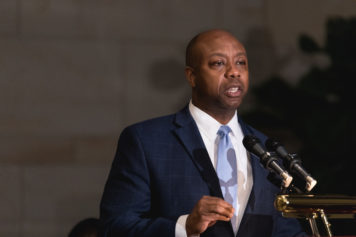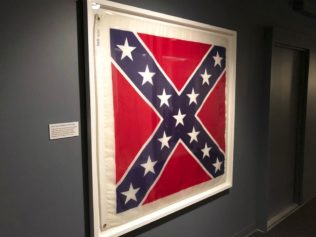
Tuesday’s election may have handed Congressional power over to the GOP, but it also ushered in several Black politicians who will go down in history – like South Carolina Senator Tim Scott, the first African-American senator to be elected in the South since the Reconstruction era.
But soon after he celebrated his historic win, it was revealed that voters responding to exit polls in Charleston, Columbia, Greenville and Spartanburg were asked a series of questions about whether Black people are going too far in their fight for equality.
One voter posted an image of the questionnaire on Twitter, showing one section were voters were supposed to “agree” or “disagree” with the statement “Blacks are getting too demanding in their push for equal rights.”
The user called the poll “shameful.”
The man behind the racially charged questions is David Woodard, a political scientist at Clemson University who insists he meant no harm by including the questions on the poll.
“It was designed to take advantage of a political moment of Senator Tim Scott’s election as the first African-American from a southern state since reconstruction,” he told WSPA. “It was not designed to be provocative.”
That’s certainly not the impression it left on voters.
“I didn’t answer some of the questions,” one Facebook user from on WSPA’s Facebook page. “They were overtly racist.”

One Twitter user pointed out the cruel irony behind the questions and the historial election.
“This is the 1ST black prson to b elected since RECONSTRUCTION [era],” they said in a series of tweets. “& u hve the nerve to say we’re being pushy? Not pushy enough apparently.”
Woodard tried to defend the poll by saying he asked those kinds of questions every day when conducting research and never had a problem.
“We do this every day,” he said. “We didn’t think too much about it until we got it out in the field and saw that there was some reaction.”
Even Paul White Jr., a doctoral candidate in political science from University of South Carolina who partnered with Woodard on the project, said the reactions were unanimous across all demographics.
“You had liberals getting offended,” White said. “You had conservatives getting offended. It was all over the place.”
Despite the controversy, White and Woodard plan to continue with the study and publish their findings in January.


